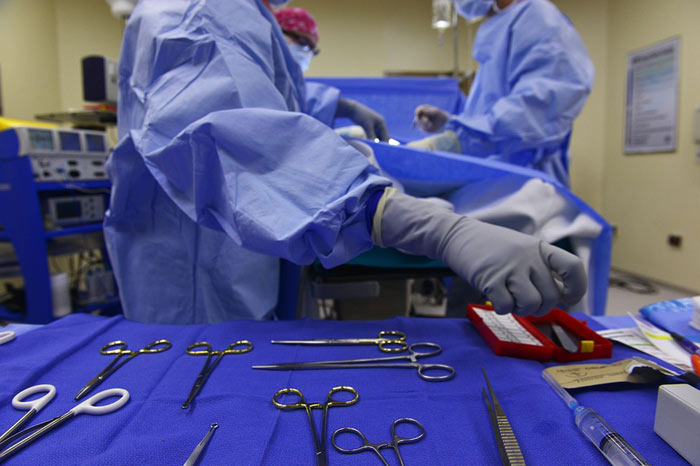It’s not uncommon for women to insert breast implants after their first child or fall pregnant and breastfeed with their existing implants. Implants offer a substantial boost in self-confidence regardless of when or why you decide to get them. Unfortunately, implants won’t prevent your breasts from changing over time, even if you decide not to have more children.

During pregnancy, it’s natural for the breasts to swell due to the milk production and remain enlarged throughout pregnancy and the breastfeeding period. Once a baby moves onto bottles, the breasts will likely shrink back to their original size, which is when changes are the most noticeable.
Breast sagging is inevitable after pregnancy, regardless of whether implants are present or not. And while augmented breasts aren’t always affected as much as natural breasts, some changes will still occur.
If your breast shape and position is altered after pregnancy, you may need to consider surgery. However, this doesn’t necessarily mean your implants need to be replaced.
Breast Surgery Options after Pregnancy
Breast Lift
A breast lift is one of the most popular types of surgery after pregnancy. The procedure is designed to get rid of excess skin, tighten the remaining skin and possibly reposition the nipples. The good news is that a breast lift can be performed without having to replace the implants.
Implant Replacement
According to Australian breast implant replacement surgeon A/Prof Mark Magnusson, implant age and damage are the only factors that would warrant a replacement. It’s common for women to replace their implants at the same time as a breast lift if they’ve had the implants for 10 years or more. Some women also choose to increase or decrease the size of their implants following pregnancy, which would also warrant a replacement.
Planning Your Replacement Surgery
If you choose to have your implants replaced, your surgery will be very similar to your augmentation. However, if a significant amount of scar tissue has formed, the surgery may be slightly more complex.
Before you can schedule your procedure though, it’s important to ascertain whether you want the same size, profile and type of implant. In some instances, it’s even possible to counteract any breast sagging after pregnancy by selecting a larger implant.
The surgeon you use should also be considered before you go ahead and schedule your replacement surgery. If your first experience wasn’t a positive one or you weren’t entirely satisfied with the results, it’s important to search for a new surgeon to assist you the second time around.
If you will be choosing a new implant size, many of today’s surgeons can give you an idea of what it will look like using 3D imaging technology.
Recovering from your breast implant replacement surgery will also be quite similar to your initial procedure. However, some women feel that the second surgery isn’t as painful because the existing breast pocket is used. The only time this wouldn’t be the case is if you chose to place the implant under the muscle when it was over the muscle the first time – or vice versa.
You will still need to take some time off work to recover and apply many of the same aftercare tips as before, including restricting exercise and correctly caring for your scars. If your surgeon uses the same incisions, which is almost always the case, there won’t be any additional scarring to worry about. With this being said, it’s still important to care for your incisions after surgery.
The Right Time for Surgery

If you are considering breast implant replacement, you will need to wait at least 6 months after giving birth. Your body needs time to recover and heal before undergoing a procedure of this nature. This also gives you enough time to gauge the effects of pregnancy and breastfeeding on your breasts and decide on the best course of action.
If you are still planning to grow your family in the future, it’s recommended that you wait until after your final pregnancy to consider surgery. There’s nothing stopping you from scheduling surgery even if you do want more children, it just means that you may need to schedule unnecessary procedures in the future.












